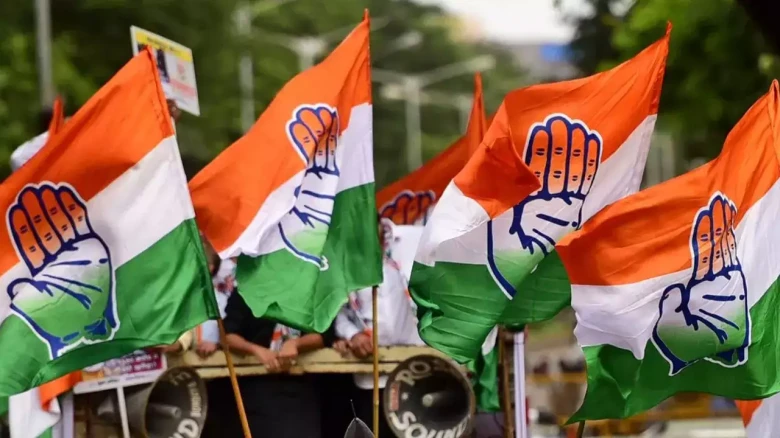Regional

Congress appears to be making social justice the "central pillar" of its 2024 campaign...
Digital Desk: After the Karnataka elections, where it launched its 'Jitna Abadi, Utna Haq' agenda, Congress appears to be making social justice the "central pillar" of its 2024 campaign, with a drive for the removal of the 50% quota cap, which might lead to a proportional reservation along with the Caste Census.
According to Congress sources, it is the "perfect antidote" to the BJP's "fading Hindutva,", especially at a time when the divide between the dominant and backward communities is "widening." This would be a topic of discussion at opposition meetings starting from June 23, they said.
Last week, Rajasthan chief minister Ashok Gehlot joined the chorus in favour of a caste census, taking a cue from the success the Congress had in Karnataka after its leader Rahul Gandhi unveiled the campaign with the initiative at its core and party chief Mallikarjun Kharge followed it up with a letter to the Prime Minister. This was a clear indication of the party's intention to use the issue as its election pitch.
Party leaders are finalizing the electoral plank and reaching out to other Opposition parties to coordinate a social justice campaign.
Also Read : PM Modi departs for the United States
Earlier this year, Tamil Nadu chief minister and DMK supremo MK Stalin welcomed opposition parties for a social justice meeting, where they supported the call for a Caste Census.
During the Karnataka election, the Congress followed it up with an intricate scheme. Rahul coined the slogan 'Jitna Abadi, Utna Haq' (representation based on population) in Karnataka's Kolar.
According to sources, with crucial Assembly elections scheduled for the end of the year, the party units in Rajasthan, Chhattisgarh, Madhya Pradesh, and Telangana are fine-tuning their strategy, and the party's central leadership is ready to raise the decibel levels on the demand for removing the 50% cap on reservations to allow more OBCs to benefit from the quota regime.
It also seeks to raise the number of reservations for Dalits and tribals to match their population. However, the party does not intend to compel their state governments to announce a state-based Caste Census after the Patna High Court rejected the Bihar government's intentions due to time constraints.
In its Karnataka manifesto, Congress promised to raise the quota ceiling from 50%, as determined by the Supreme Court in the Indira Sawhney case, to 75% as the party plans to transition from a representational quota regime to a proportional one. In addition, the top court approved a 10% reservation for the economically deprived portion, essentially breaking the 50% ceiling.
The attention of Congress and other opposition parties on OBCs comes after the BJP successfully wooed the communities in the previous two general elections.
Surprisingly, the Congress has shifted to the opposite end of the spectrum from its position in the early 1990s, when its leaders and supporters were at the forefront of the anti-Mandal campaign. According to a senior leader, it is a return to the 'Mandal-Kamandal' politics of the 1990s, when the BJP employed Hindutva politics to challenge pro-quota parties based on caste and social justice.
Leave A Comment